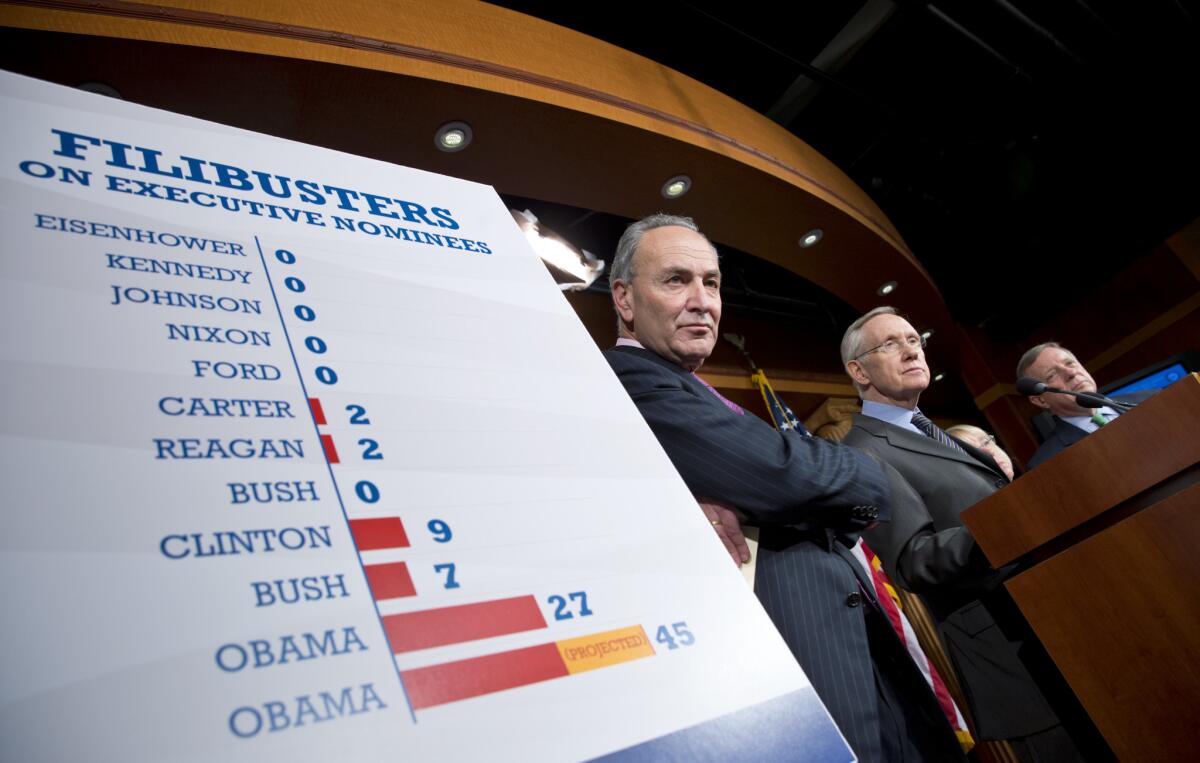Democrats bust the filibuster, and good for them

After years of dithering, Senate Majority Leader Harry Reid (D-Nev.) on Thursday finally triggered the so-called nuclear option and pushed through a change of rules that will allow the vast majority of presidential nominations to be confirmed if they are supported by a simple majority. The filibuster has been busted — and a good thing too.
The inside-the-Beltway question about Thursday’s “explosion” is whether the Republicans had it coming. They did. After Reid drew back from the nuclear option in July in exchange for Republican acquiescence in the confirmation of some executive branch nominees, the GOP leadership decided to filibuster three more of President Obama’s nominees, this time to the influential U.S. Court of Appeals for the District of Columbia Circuit. Republicans feared, not irrationally, that the Obama appointments would tilt the court leftward.
Unable to quarrel with the nominees’ stellar credentials, Republicans opposed them on the pretext that the D.C. Circuit was underworked and didn’t need more judges. One by one, Obama’s choices were denied the 60 votes needed for their nominations to proceed. That was too much for Reid. So on Thursday, he dusted off the nuclear option. Henceforth senators won’t be able to filibuster presidential nominees, with the exception of candidates for the Supreme Court.
PHOTOS: Famous filibusters (and a bonus -- a recipe for fried oysters)
We welcome this action not because it represents a comeuppance for arrogant Republicans but because filibustering presidential nominees is undemocratic and violates the spirit if not the letter of the Constitution, which says that the president shall appoint judges and other officials “by and with the advice and consent of the Senate” — not by and with a supermajority of the Senate. This isn’t a new position for this page. We advocated the nuclear option in 2005, when Republicans were threatening to “go nuclear” to stymie Democratic filibusters of judges nominated by President George W. Bush.
In recent years, the original, stem-winding filibuster mutated into a “filibuster lite” that allowed senators in the minority to block a vote on a nominee without having to engage in marathon speechmaking. A once-rare form of obstruction became commonplace. Now a minority of senators will be free to vote against a president’s nominees but not to prevent a vote from being taken. That’s a victory not just for the Democrats but for good government.
More to Read
A cure for the common opinion
Get thought-provoking perspectives with our weekly newsletter.
You may occasionally receive promotional content from the Los Angeles Times.






